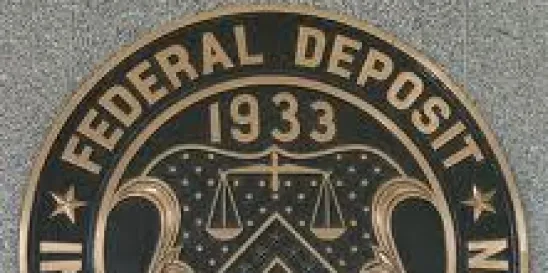On Jan. 19, 2024, the Federal Deposit Insurance Corporation (FDIC) issued letters demanding five entities and certain associated parties cease and desist from making false and misleading statements about FDIC deposit insurance. According to the FDIC, the companies made false representations, including stating or suggesting they are FDIC-insured or that the FDIC insures certain uninsured financial products.
FDIC Chairman Martin J. Gruenberg emphasized that these misrepresentations pose significant risks to consumers and the banking system.
| Key Points of the FDIC Enforcement Action: |
|
Background
The Federal Deposit Insurance Act (FDIA) prohibits any person from falsely implying that an uninsured financial product is FDIC-insured or knowingly misrepresenting the extent and manner of deposit insurance. It also forbids companies from implying FDIC insurance through the use of the “FDIC” name in company names, advertisements, or other documents. Under the FDIA, the FDIC is authorized to enforce these prohibitions against any person.
On Dec. 20, 2023, the FDIC Board of Directors adopted a final rule amending part 328 of its regulations. The final rule substantially revises FDIC rules regarding misrepresentations and addresses scenarios where a person, including a non-bank entity, provides information to consumers that may mislead or confuse consumers as to whether they are doing business with a bank and whether their funds are protected by deposit insurance. The rule specifically addresses the use of FDIC-associated terms or images in marketing and advertising, prohibiting their use to falsely imply or represent that the FDIC insures any uninsured financial product or non-bank entity.
Takeaways
These enforcement actions underscore the importance of accurate and compliant representations regarding FDIC insurance in all financial products and services. Firms, particularly firms utilizing bank partnerships, should undertake a compliance review of all marketing materials, product descriptions, and customer communications in order to ensure any representation of FDIC deposit insurance status is accurate, and use of FDIC names or logos permissible. An audit of all financial products is also important to verify that no misleading statements are made regarding FDIC insurance coverage. Firms should also consider enhancing training programs and internal policies to focus on compliance with FDIC regulations. This includes strengthening checks and balances to avoid inadvertent misrepresentations of FDIC insurance and reinforcing employee awareness about the importance of accuracy in customer interactions.
Furthermore, financial institutions should consider strengthening oversight of third-party vendors or partners, especially those involved in marketing or distributing products, to ensure those vendors adhere to FDIC standards. Developing a proactive communication strategy may help to educate and reassure customers about the institution’s commitment to accurate FDIC insurance representations. Institutions may also wish to also prepare for potential regulatory inquiries by establishing a response plan and designated points of contact.




 />i
/>i

